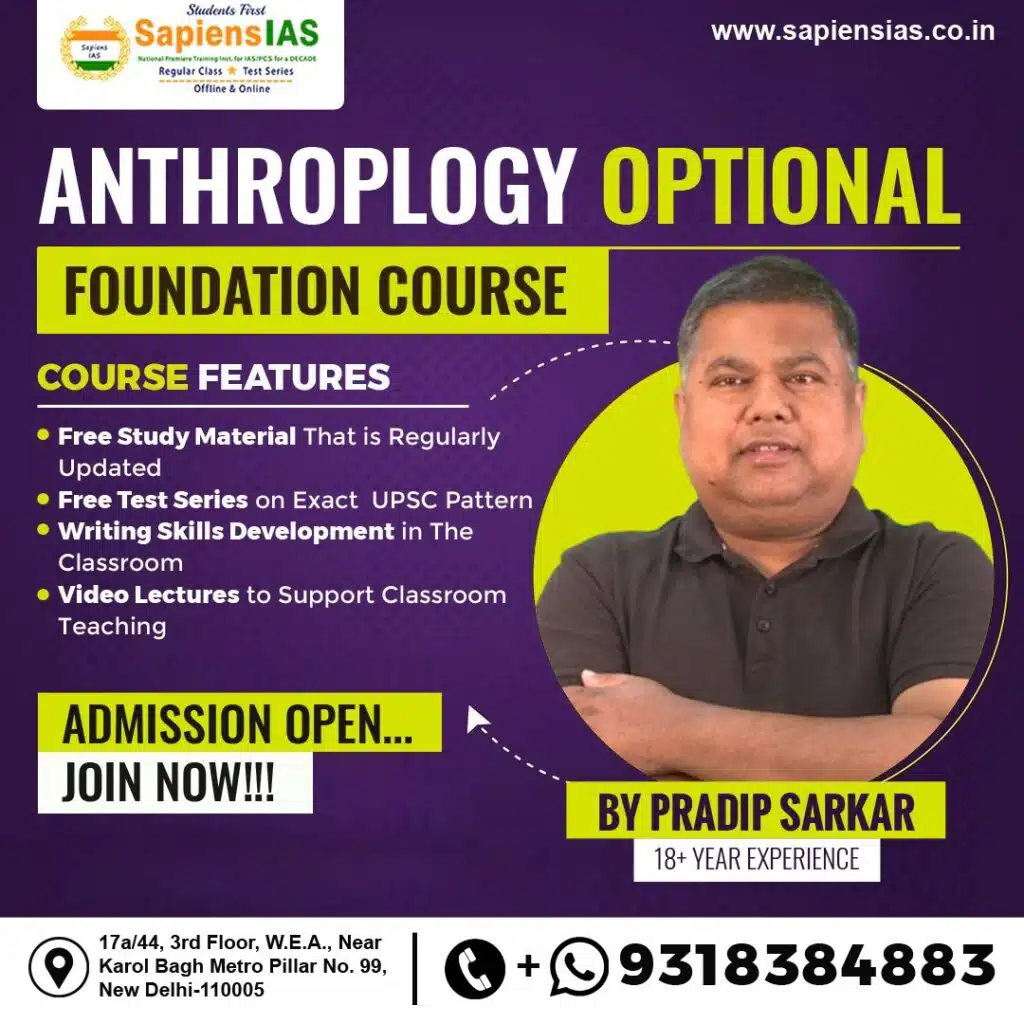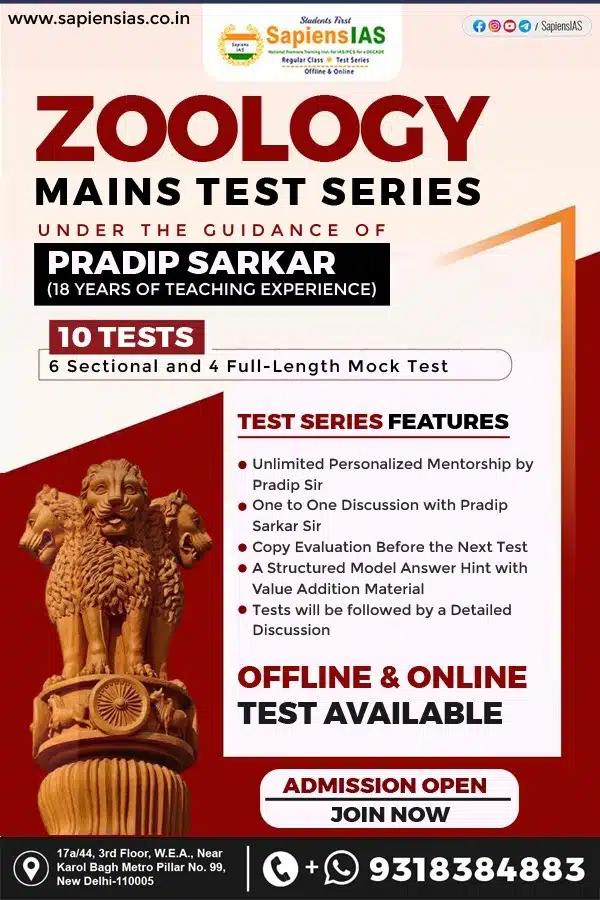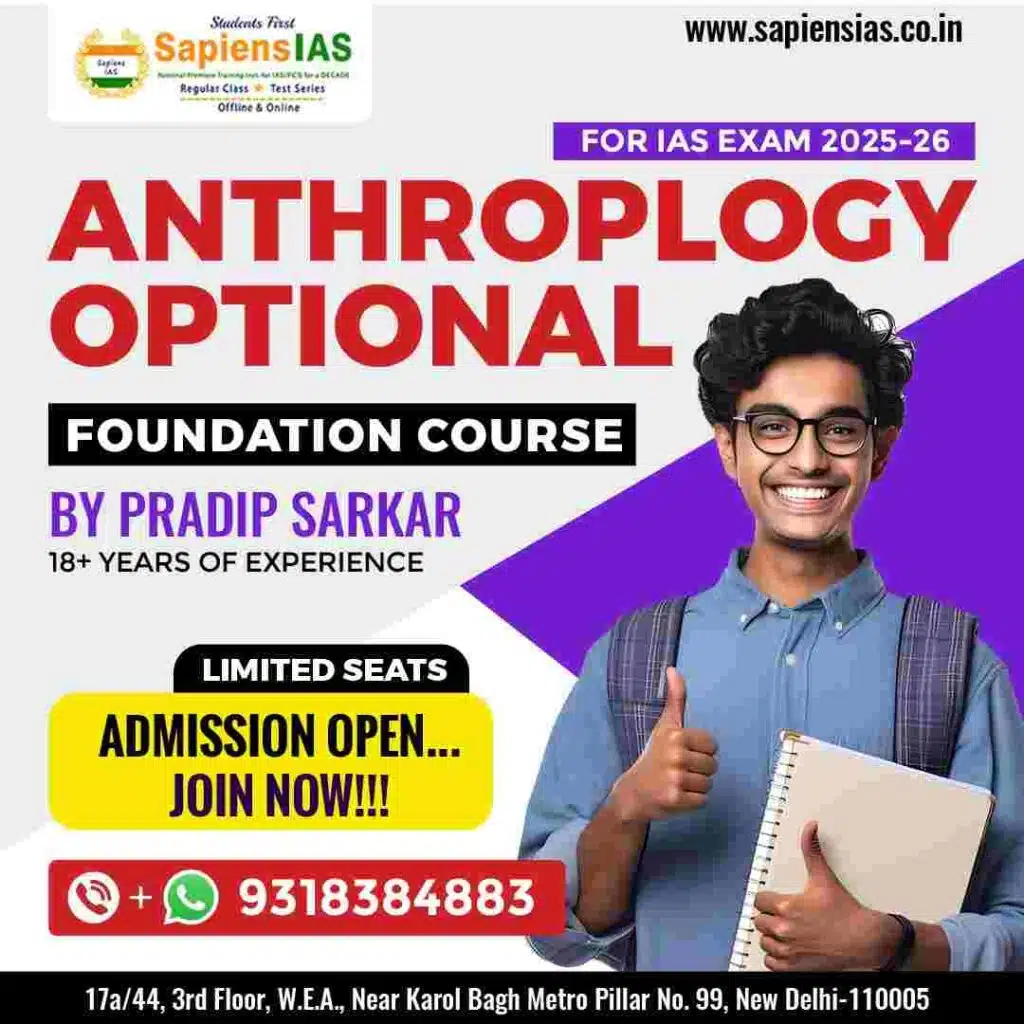Table of Contents
ToggleHave you made up your mind to start prepping up for the West Bengal Civil Services Exam? If yes, then here is a great chance for you by Sapiens IAS to ensure that you successfully excel in your career. We understand that there is a lot of hard work needed by an individual to make sure that he passes this exam with good marks. But all that is need for getting a good result is a bit of perseverance and dedication. Every year number of WBCS aspirants appears for the exam but only a few can make it to the top. Do you want to know why? It is because they are not only working hard but also using smartness while studying.
If you are also the one who wants to know about how to prepare anthropology optional for WBCS, then this is the right place for you. Today we will be seeing what all are the steps that you need to follow for getting qualifying scores in the WBCS exam. This is your only chance to serve the country and its people with your heart. Make sure that you do not let it go waste. So, now let us begin with the anthropology strategy for WBCS.
Here are the important points for you which will tell you how to start WBCS exam preparation!!!
Get a Copy of your WBCS Anthropology Exam Syllabus
It is very common to understand that before every exam we need to make sure that we are acquainted with WBCS anthropology syllabus. This will help you get an idea of what is going to come in the exam so that you do not waste your time reading unwanted things. To get the WBCS anthropology optional syllabus, you can visit the WBCS website or download it from here.Sign Up to Score Higher Better Faster
Pick the Best Books
- Fossil Evidence – S Das
- Indian Anthropology – R.N Sharma / Nadeem Hasnain
- Anthropology Theories – Makhan Jha’s
- Physical Anthropology – P.Nath / S.Das
- Social Anthropology – Maunder/Madan
Follow a Schedule
It is one of the most important tips which you need to follow if you are passionate about clearing the exam in the first attempt. You can make a schedule for yourself which will help you decide the routine which you will follow. Remember to add at least 7-8 hours of sleep and some rest time as per your convenience. Do not avoid it as these are the two main things which will help you focus on studies.Prepare Anthropology Notes
While the WBCS Exam preparation, it is a tad bit difficult to always go by the books. Hence, you must make anthropology optional notes along with it. If you are bad at making notes, then you can look for the best WBCS anthropology coaching online. It is a good idea since; they will provide you with the anthropology notes for WBCS which are made by professionals.Practice Previous Year Papers and Give Mock Test Series
This is the last step where you will get a reality check of how much you are prepped up for the exam. You can solve the WBCS anthropology previous year question paper and learn more. After this, you can also appear for the mock tests taken by the coaching institutes for further betterment.
These were the steps that you need to follow for making sure that you qualify for the WBCS exam with good marks.
About WBCS Anthropology Coaching Online
At Sapiens IAS, we are working very hard to ensure that you clear the exam. Our founder, Mr. Pradip Sarkar is doing his best to help all the civil service aspirants. From our faculty to the study material; everything is on point for you. The students can contact us at any time of the day for help. We are always here to guide you for the WBCS exam.
FAQ
How many times can a student appear for the WBCS exam?
There is no such limit to the number of times any student can appear for the WBCS exam. He/she is eligible to fill the form up to any number of times till the upper age limit described by WBCS.
Is it mandatory for the aspirant to know Bengali?
Yes, the aspirant must be well-versed with Bengali for clearing the WBCS exam. Even though the aspirant clears prelims and mains, but his/her knowledge of Bengali will be tested in the interview round.
How many times in a year is WBCS held?
West Bengal Civil Services exam is held after every 1 – 1.5 years. This means that the exam happens once in a year which will include the prelims and mains.









